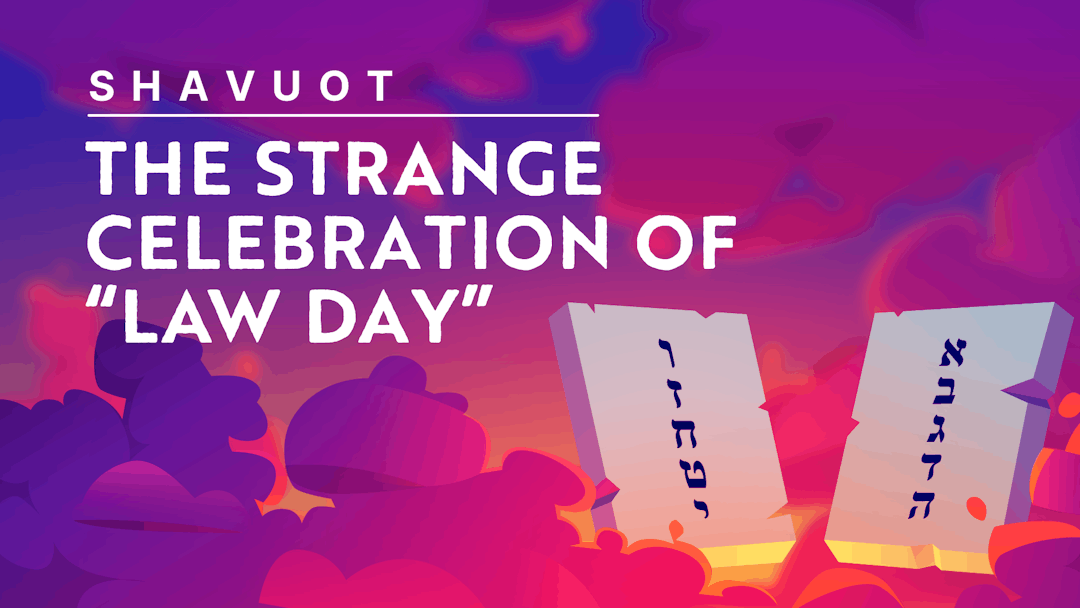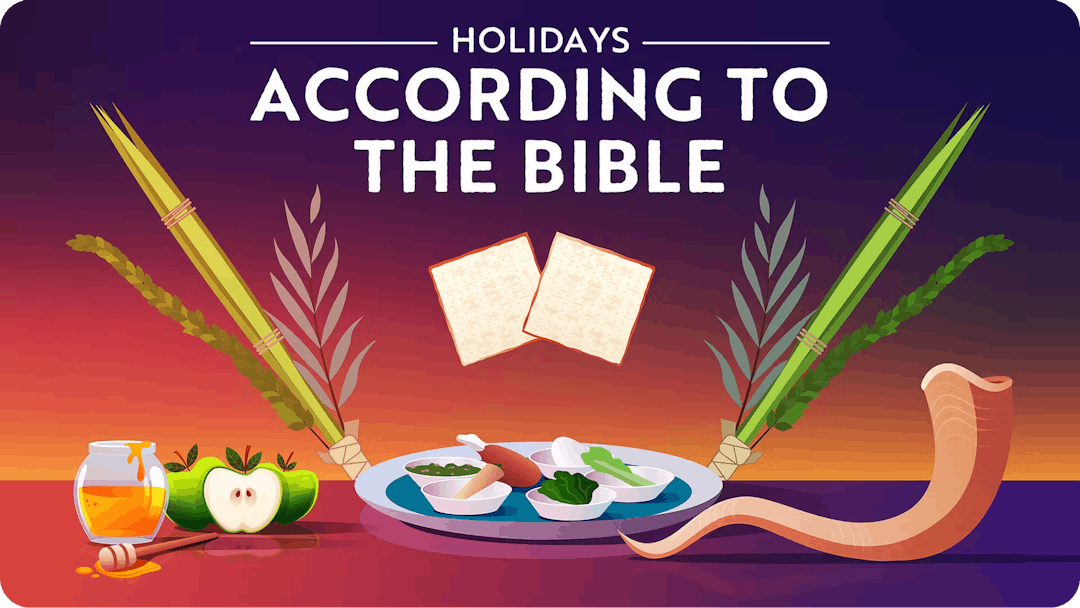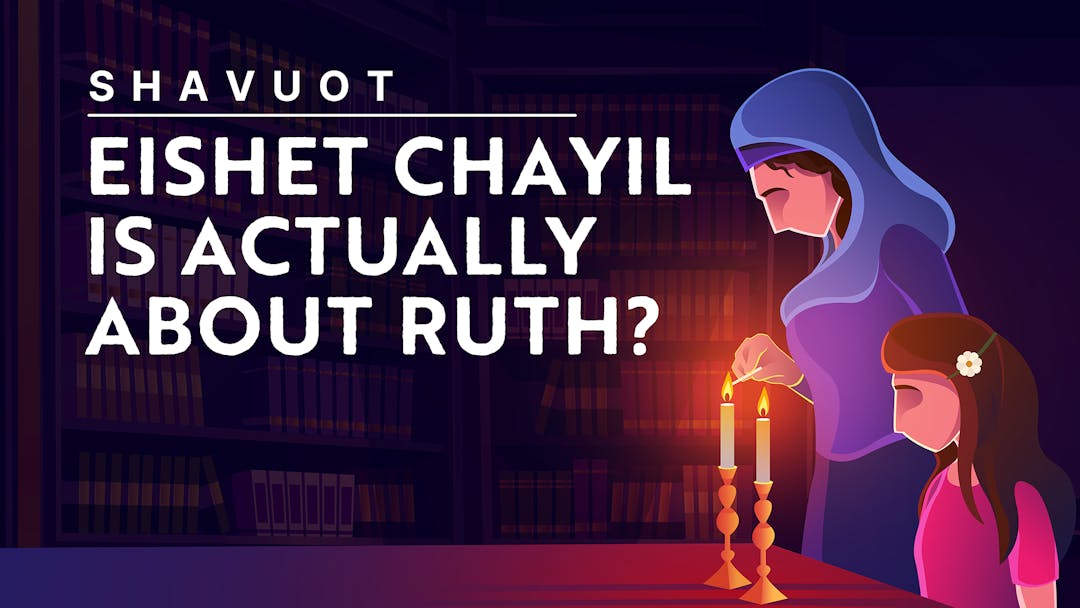Start your free trial today to unlock the full library and enjoy unlimited and uninterrupted access.
Get StartedThe Giving Of The Torah At Mount Sinai (Part 1 of 6)
The Real Shavuot: Receiving Torah or Harvest Festival?
If you were asked what we remember on Shavuot, what would you say? The giving of the Torah, right? But did you know that in the Biblical commandment to celebrate Shavuot, there is NO MENTION of the giving of the Torah?! The Torah describes the origin of Shavuot, it tells us that it's a harvest holiday, a day to remember that God took us out of Egypt, a day to be joyful with our families and workers – but absolutely nothing about receiving the Torah!
So how did we get to Shavuot as we know it? Ah, we have the rabbis to thank for that. The rabbis come along, in the pages of the Talmud, and spin this story for us: about how Shavuot isn’t just a harvest festival, it’s the commemoration of when we stood at Mount Sinai!! So is this what Shavuot really celebrates?
Now, the Torah tells us that we’re supposed to listen to the rabbis... but it’s times like these that make you wonder: “Where are they coming up with this stuff? And who do they think they are? Making a decree is one thing, but you can’t just decide that a holiday means something that it doesn’t. It’s God’s call, not theirs, right? Is there any appeals process here?"
It’s true, the Torah’s description of Shavuot's origin says nothing about the giving of the Torah — but there are echoes to be found elsewhere in the Torah, echoes that do suggest this very link. In this video, Rabbi Fohrman embarks upon a sweeping journey, closing the mysterious gap between the Biblical Shavuot and the Shavuot as we know it — and most importantly — discovering the hidden depth in this all-important holiday.
Discover other great Shavuot videos at Aleph Beta, including ‘The Hidden Structure of the Ten Commandments’, ‘The Book of Ruth’, and ‘Our Guide To Celebrating Shavuot’
Want to watch the full video for free?
Enter your email and we’ll send you a link to watch the full series free.
What is Aleph Beta?
Aleph Beta is a unique kind of Torah library. Led by our founder, Rabbi David Fohrman, we are dedicated to high-level, textual Torah learning for adults that is intellectually and spiritually sophisticated, that enlivens your Jewish practice and helps you forge a deeper connection to God. Whether you’ve been learning in yeshiva for years or you’re just beginning your Torah journey, you’re sure to find something meaningful and surprising waiting for you here.
Browse our library of over 1,000 beautifully produced animated videos, podcasts, deep dive courses, and printable guides. Topics include the weekly parsha, Jewish holidays & fast days, laws & mitzvot, prayers, relationships, big philosophical ideas and more. Have something to say at the Shabbos table that will amaze your family and guests and bring deep meaning into their lives.











